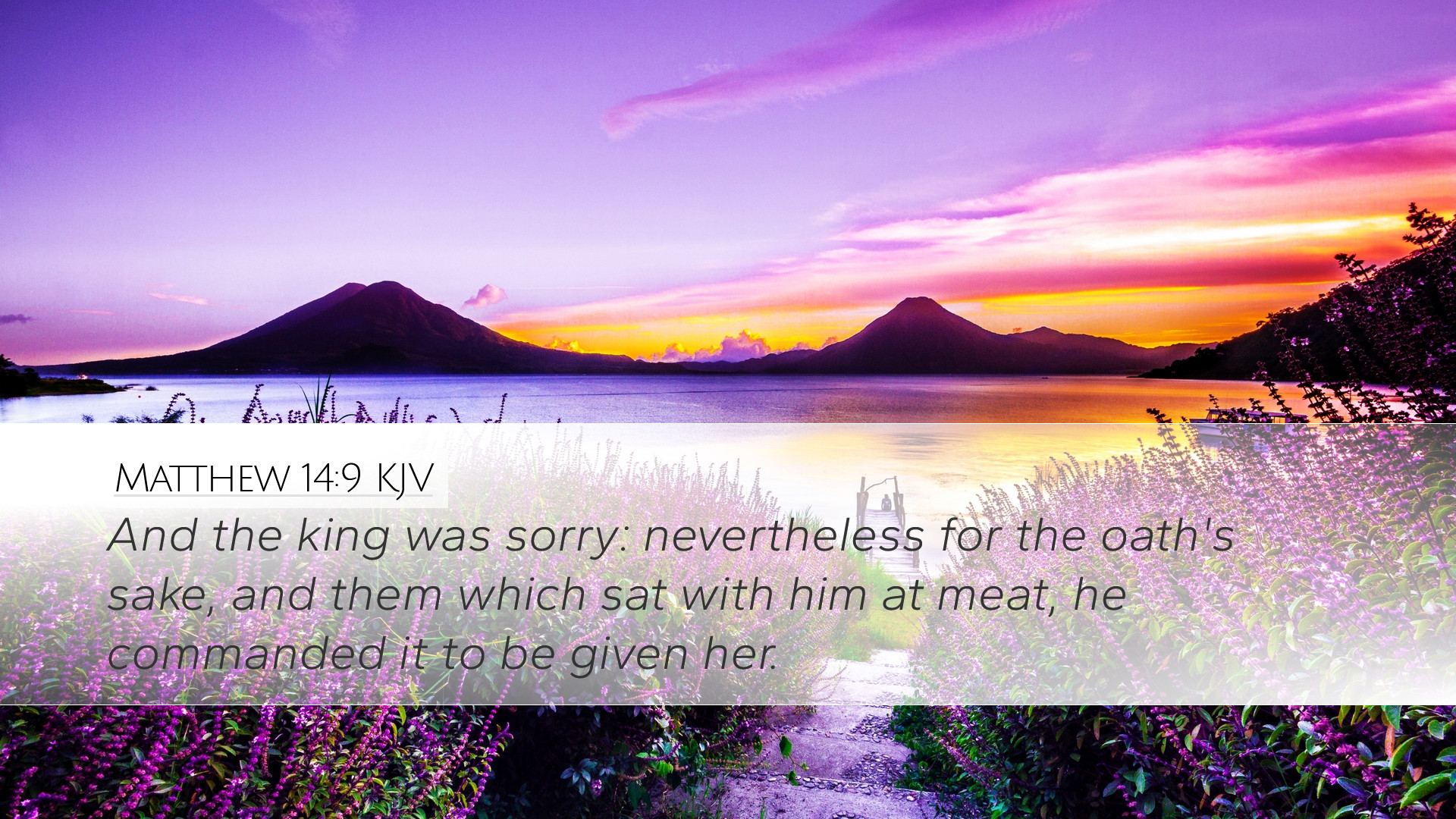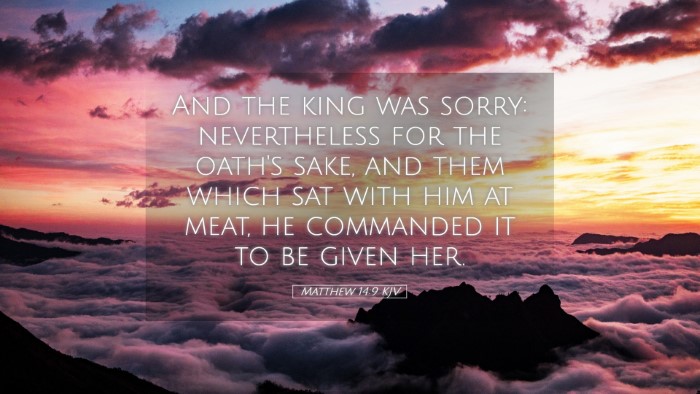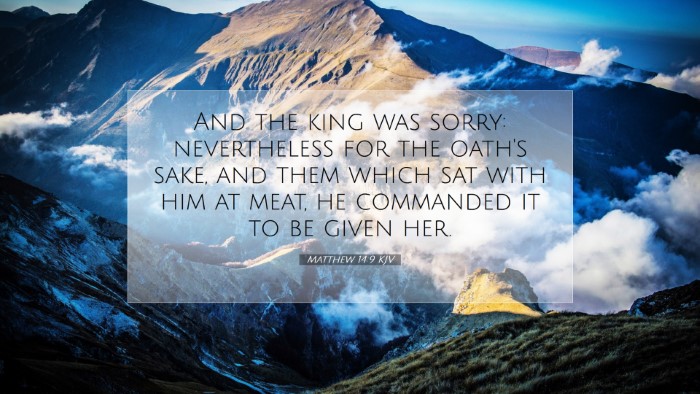Commentary on Matthew 14:9
Verse Context: Matthew 14:9 states, "And the king was grieved: yet for his oath's sake, and them which sat with him at meat, he commanded it to be given her." This verse occurs in the context of Herod's decision to carry out the beheading of John the Baptist, following the request made by Salome after she danced for Herod. The passage serves as a poignant commentary on the interplay between personal conviction and public obligation.
Interpretation Overview
In exploring the significance of this verse, several overarching themes emerge, particularly regarding leadership, moral integrity, and the nature of oaths. The insights from various public domain commentaries enhance our understanding of the complexities involved in Herod's decision-making process.
The Grief of Herod
Matthew Henry's Commentary: Matthew Henry emphasizes Herod's internal struggle. He notes that Herod was "grieved" because, despite his authority as king, he was tormented by the awareness of John the Baptist's righteousness and the weight of a morally questionable decision. Henry highlights that genuine grief often accompanies sinful choices, showcasing the discord between one's leadership role and ethical convictions.
The Weight of Oaths
Albert Barnes' Notes: Barnes points out that Herod's adherence to his oath was rooted both in the customs of his time and in a desire to maintain his reputation before his guests. The emphasis on "for his oath's sake" illustrates a commitment to societal expectation over personal conviction. Therein lies a cautionary tale for leaders and believers alike: the dangers of permitting public opinion to overshadow divine principles.
Oaths in Biblical Context
Oaths hold significant weight in biblical literature, often serving as a measure of integrity. In this instance, Herod's refusal to break his oath reflects his prioritization of legalistic adherence over moral discernment. Adam Clarke elucidates the nature of Herod's oath, suggesting that it was less about truth and more a reflection of the pomp surrounding his court life.
The Role of Audience
Adam Clarke's Commentary: Clarke elaborates on the implications of Herod's actions in the presence of his guests. His desire to appear strong and decisive led him to sacrifice an innocent life, which sheds light on the corrupting influence of flattery and peer pressure. Clarke encourages readers to consider how often personal integrity is compromised for the sake of social acceptance.
Moral Reflections
These commentaries collectively suggest profound moral reflections on the nature of human leadership. The tragic fate of John the Baptist serves as a stark reminder of the consequences that can arise from yielding to public sentiment, particularly when it contradicts a higher moral standard.
Lessons for Leaders and Followers
- The Importance of Integrity: Leaders, pastors, and individuals alike must prioritize integrity over popularity.
- The Dangers of Compromising Values: The story illustrates the potential perils of external pressure that can lead to destructive decisions.
- The Role of Conviction: Strong personal convictions must guide actions, especially when facing dilemmas that pit public expectation against ethical beliefs.
Conclusion
Matthew 14:9 encapsulates the tragic interplay between personal struggle and societal expectation. Through the lens of respected commentaries, the insights provided reveal a multi-faceted view of leadership, the integrity of promises, and the overarching sovereignty of God in human affairs. For pastors, theologians, and scholars, this passage serves as a timeless admonition about the nature of leadership and the essential call to uphold biblical principles even in the face of formidable challenges.


